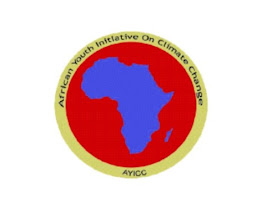Part 1: Demystifying the Green Economy
Setting the Context
Learning should be fun, no? Last year, in 2012, we
came up with a series of short, snappy blog posts that aimed at demystifying
the UNFCCC COP process, and
they culminated in an easy and fun-to-read Pocketbook, aptly titled Peeling Back the COP.
Youth volunteers have so far translated this pocketbook into ten languages from
all over the world, with many more translations on the way. This
project was so successful that the UNFCCC Secretariat has hosted it on their
website as part of their climate change learning resources.
In light of this, we have decided to come up with a
fun and easy-to-read guide to the Green Economy Report,
the document that outlines the most viable way to achieving a global
low-carbon, resource efficient economy. However, this guidebook, titled Demystifying
the Green Economy, will be unique in that it will have a youth focus, showing
how young people all over the world are leading the way towards the realization
of a Green Economy.
Call for
projects: If you are a youth with an innovative project on one or more of the following
topics, kindly send an email to mbevakl@gmail.com and rbinmakomere@gmail.com so that it may
be considered for featuring in this guidebook: agriculture, fisheries, water, forests,
renewable energy, manufacturing, waste, buildings, transport, urban centers/cities projects and tourism.
Introduction
There is no
doubt that the famous Brundtland Report on Sustainable Development was the spark the lit the conversation on the need
to achieve sustainable development, which had actually been simmering over the
years. However, the publication of this report brought forth a sense of urgency
in addressing environmental degradation and climate change. From then
henceforth, the world has seen renewed efforts and discussions aimed at solving
these challenges.
Paradigm Shifts
One of the major
changes that started taking shape was a slow but albeit powerful paradigm shift
in how we define development, and the need to place ecological limits that
would ensure that future generations would have the opportunity to enjoy using the
Earth’s resources, and to develop using them. The political landscape was also changing, with the famous
Earth Summit of 1992 held in Rio de Janeiro, Brazil,
being the hallmark of this paradigm shift.
Simple Premise; Complex Interpretation
The premise
underpinning sustainable development is simple, yet very powerful. It calls on
the current generation to use natural resources in such a manner as to make
certain that future generations will also be able to benefit from the same
resources: posterity. However, this issue interfaces with so many other critical
issues, such as politics, governance, economic development and human rights,
and realizing it has become quite a challenge. There being no universal
blueprint for achieving a Green Economy, the UN Environment Program (UNEP) came
up with a landmark initiative titled The Green Economy Initiative, and
this was followed by the publication of the Green Economy Report.
Due to the
complex nature of how things work, from the local, national and regional to the
international level, there have been varying sentiments that have been
expressed with regard to how to effectively transition to a global low-carbon, resource
efficient economy.
The Spine: Definition of the Green Economy
All said and
done, the working definition of the Green Economy, according to UNEP, lays down the
most basic objective of the Green Economy:
“…..one that results in improved
human well-being and social equity, while significantly reducing environmental
risks and ecological scarcities. In its simplest expression, a green economy
can be thought of as one which is low carbon, resource efficient
and socially inclusive”
Storm Over Semantics
However, there
have been numerous and often conflicting perceptions, and even
interpretations, of the Green Economy concept; more on this in the next instalment!
Compiled by:
Kennedy Liti Mbeva

Comments
Post a Comment